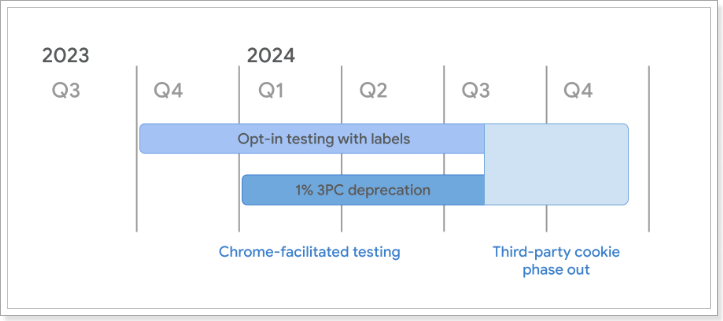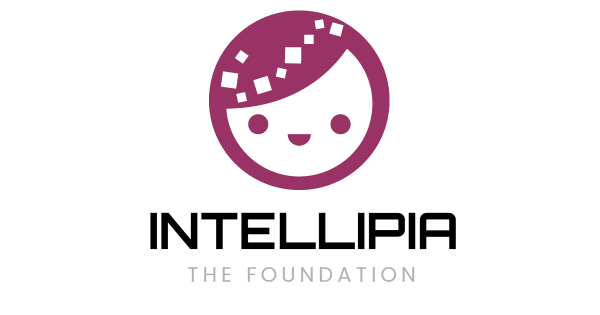What is the cause of the incident that has puzzled some Chrome users since January 2, 2024, and has Google provided an official explanation?
Yes, Google has explained that they are gradually phasing out third-party cookies, and in January 2024, they began blocking these cookies for about 1% of users.
For example, users have experienced issues where publicly shared Google Drive files are no longer supported via HTML links, third-party domain ads embedded on websites stop functioning, and content fails to display if hosted on different domains, even if on the same server.
Despite pushback from the advertising industry, Google is moving forward with this initiative, not as a corporate choice, but as a commitment to international privacy standards, making it unlikely for them to halt this process.
By the second half of 2024, the full-scale blocking will be implemented. Safari, Firefox, and Edge have already adopted similar measures. The issue seems larger with Google Chrome due to its high market share. While the industry is preparing, the transition is expected to be challenging.
https://developers.google.com/privacy-sandbox/3pcd?hl=ko
The advertising industry might see this as a power move by global companies.
Indeed, the backlash is significant, especially for those whose livelihoods are affected. The web advertising ecosystem has relied on third-party cookies for a long time, making this a costly shift for Google as well. However, the global market environment necessitates this change.
Google is allowing a grace period, using a subset of users for testing, while focusing on adapting its own services like Google Ads to respond to the third-party cookie ban with new technologies and solutions.
Could there be a new browser that supports a more flexible approach to third-party cookies?
While this might seem like a business opportunity, it would not gain international acceptance. Privacy protection is becoming a global standard, and the move towards eliminating third-party cookies is part of this trend.
The increased online presence during the pandemic has heightened the need for privacy and security. Third-party cookies pose significant privacy risks, and their continued use would be inappropriate in today's context. Collecting information on user entry paths also constitutes a serious privacy violation, which is why most browsers enforce the Same Origin Policy.
I understand the Same Origin Policy restricts web pages from interacting with different sources. Is it similar to third-party cookie restrictions?
Yes, the Same Origin Policy considers sources the same if they match in:
- Protocol (HTTP/HTTPS)
- Port number (8080/443)
- Hostname (localhost/example.com)
Different origins cannot access each other’s resources, preventing malicious sites from stealing user data. Chrome, Firefox, Safari, and Edge all enforce this policy by default.
Given Google’s reach, they could extend the testing period for cookie restrictions. For those unaware, the timeline until Q3 2024 feels rushed. Is Google offering alternative solutions?
There are various alternatives, but none fully replace third-party cookies. Google suggests using iframe methods, but relying on insecure iframes would be contradictory and widely criticized.
It's likely Google will avoid this path. Instead, users and developers should prepare for first-party cookie strategies, which align better with privacy and security standards.
Could you clarify the concepts of first-party and third-party cookies?
In simple terms, first-party cookies store information related to the current website the user is on (same domain), while third-party cookies track activities and collect data across different websites or services (different domains).
For example, banner ads linked from another domain would be blocked as third-party cookies. Due to privacy concerns, browsers
have been offering ways to control or block these cookies, and now the move is towards mandatory blocking.
First-party cookie-based advertising prohibits third-party domains. Does this mean advertisements must be internally generated within the site? It feels like there’s a burden for sites relying on ad revenue to either directly manage ads or establish direct connections with advertisers through creative concepts.
Let's consider the opposite scenario, such as an online store. While online stores engage in their own marketing activities, many rely on advertising solutions from companies like Google Ads. These typically involve distributing banner ads across various web platforms, collecting user data through clicks, and navigating them.
While this method has been effective, considering the current internet landscape and advertising trends, it’s not advisable to solely depend on this approach. Transitioning to third-party cookie blocking for privacy reasons is viewed favorably by many.
In that case, what advertising methods would be suitable for online stores?
In today's era, where there’s abundant content production capability, proactive advertising and marketing activities are essential. While a decade ago, finding skilled personnel and establishing a presence was challenging, companies that persevered with such strategies even then have gained resilience for times like these. Regardless of how the times change,
first-party assets remain untouched. Leveraging these assets for proactive marketing is crucial for businesses. Collaborating with third parties for advertising and marketing is natural, and companies may utilize this depending on their reach and level.
The issue isn't with third-party methods per se but with the use of 'cookies.' Instead of blocking advertising companies, it's about blocking cookies. Adopting and transitioning to new methods that prioritize privacy and security is the solution.
Insisting on traditional advertising methods is futile. Ad blockers will continue to improve, and it's wiser to acknowledge that it’s not the fault of the world for declining advertising effectiveness but rather the outdated methods not aligning with the times.
Simply put, it's about phasing out outdated methods and transitioning to new ones.
It might sound simplistic to some, but for those whose livelihoods are at stake, it’s significant. Similarly, it applies to tech professionals.
The expansion and improvement of the IT landscape aren’t universally beneficial. Failing to adapt to heightened security standards and lacking agility in the era of AI will result in technological and market paradigm shifts, which aren’t the concern of a few individuals.
What new solutions could advertising companies adopt?
Beyond technical considerations, there are numerous advertising methods apart from third-party cookie-based ones. Developing influencer or content-centric advertising solutions to connect advertisers with publishers and fostering bidirectional communication with first-party sites could result in cleaner advertising methods.
Banner ads will likely be effective only within the first-party domain.
Additionally, there are methods like CDN-based advertising, allowing access to sites for displaying ads. For sites reliant on banner ad revenue, CDN-based advertising solutions could prove beneficial.
In essence, it's not about blocking advertising methods but rather blocking third-party cookies. As long as it’s cookie-less advertising, traditional methods can persist. CDN-based advertising solutions could serve as alternatives to maintaining conventional practices.
Therefore, it's crucial for prepared parties to explore CDN services or develop solutions specialized in integrating first-party and CDN for adaptation to the globally trending reinforcement of personal data protection for business reasons.
|
Related Posts
|
|
1.Causes of Google Drive issues
|
|
2.Alternatives for Google Drive issues
|
|
3.PWA and browser security issues
|
|
Changes in browsers and outlook on vanilla JS
|
Intelipia defines knowledge in contemporary terms, emphasizing its fluid nature. As a result, all content is edited with a foundation of flexibility. Intelipia eschews the pursuit of fixed answers, instead aspiring to create a joyful 'knowledge playground' centered around principles. Responsibility for utilizing Intelipia's content rests with the users, a fact underscored by the platform.

